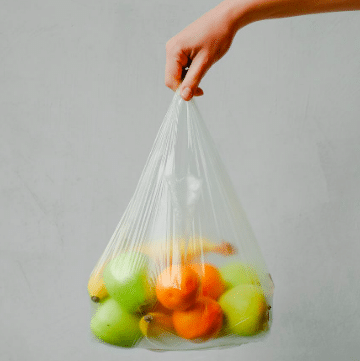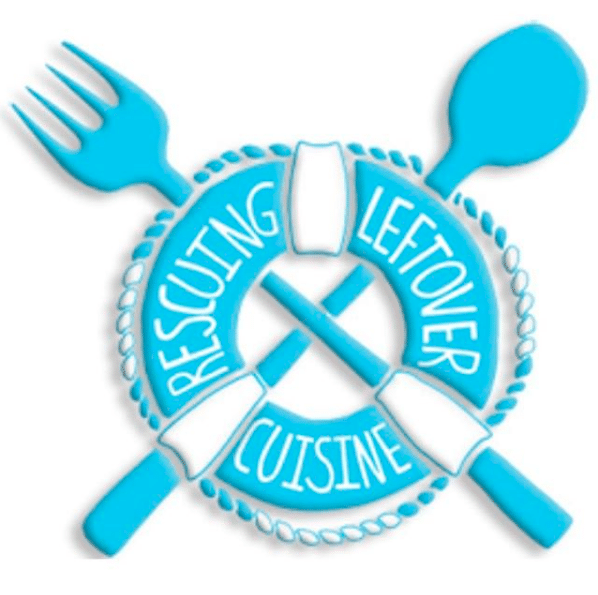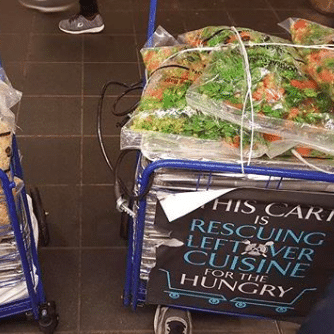There is an enormous gap between food insecurity and food waste in this country. More than 37 million people across America suffer from food insecurity. Meanwhile, immense amounts of food are thrown away by restaurants every day due to over preparation and business fluctuations. This is where Rescuing Leftover Cuisine {RLC} comes into play. Since 2014, this organization has been working with restaurants and catering businesses, first in New York City then to more than 15 cities nationwide, to narrow the gap — picking up unused but perfectly edible dishes from local businesses and delivering them to people in need. This year, RLC has come to Jersey City. Hoboken Girl sat down with the founder and director of RLC, who goes by M, to hear about how this fledgling nonprofit came to be.

Coming to Jersey City

{Photo credit: @rescuetheleftovers}
M found the calling to address the food waste problem a long time ago. She herself grew up in a household in which wasting food was frowned upon — her grandparents had experienced war and extreme hunger, and she was taught to never waste food. After having volunteered with the New York City branch of RLC, she realized that the idea would be able to gain traction in Jersey City, where she lives — there is a vibrant restaurant scene here and as many of us know, there are tons young professionals living in this area who are keen to help the community. She proposed to the headquarters to start a Jersey City branch of RLC, was given the green light, and RLC Jersey City was founded in March 2020.
Read more: Staying In? Here are Restaurants Offering Delivery in Hoboken + Jersey City
Addressing Food Waste in JC

{Photo credit: @rescuetheleftovers}
Since then, “it has been all start-up mode,” M shared. RLC’s operation model, generally speaking, is to have volunteers pick up unused food from partnering restaurants {or vendors, as RLC calls them}, and deliver it to local shelters or soup kitchens. Since there are various local stakeholders in the process, many things had to start from scratch. One major task is to spread the words out to vendors to convince them of the benefits of donating unused food and sign them up for upcoming food “rescues.”
“Rescuing unused food not only helps those in need in the local community,” M told Hoboken Girl. “Vendors receive monthly reports from RLC Jersey City on food donations broken down by date, which can help them better manage material costs and food waste. Also, they may receive additional tax savings through food donations. RLC Jersey City provides all the documents needed for tax write-offs.”
She also added that a nominal administrative fee charged at other RLC branches is exempted in Jersey City. “Our rescues are provided at no cost to local vendors,” she said. Also, vendors need not be too concerned about the legal liabilities, she explained, since the Bill Emerson Good Samaritan Act of 1996 ensures that there are no legal liabilities when donating food as long as food safety and other standards are met.
Expanding in JC
In its first few months, RLC Jersey City started working with chains and event planners with relatively large operations, such as Pret A Manger, Panera Bread, and Greater Good Events, a local event planner. Recently, it has been extending its partnership to individual small businesses as well.
One of the local vendors RLC Jersey City has been working with is Freetown Road Project, which has been donating food through the organization three times a week since May. “One of my favorite things about rescues is meeting the people, and it’s been a real blessing getting to know Chef Claude Lewis and his family,” M said. The organization is having ongoing conversations with many other local individual restaurants and expects to enlarge its rescuing efforts as businesses gradually return to a fuller capacity.
Another task RLC in JC is working on is to recruit volunteers, but as with most things, the COVID-19 lockdown resulted in some extra challenges in completing this task. “The lockdown started not long after RLC Jersey City was founded, so we had to ‘freeze’ for some time,” M said.
Things have picked up speed recently. “We make sure the safety measures are in place. Volunteers are asked if they have any contact with COVID patients before each rescue. They are also required to wear masks and gloves. The team lead also brings extras for volunteers who need them. Pick-up and drop-off are made as contactless as possible,” M told Hoboken Girl.
See more: Where to Donate Food to People in Need in Hoboken + Jersey City
Volunteering with RLC
Those interested in volunteering can sign up for a “rescue” through RLC’s event calendar, where the dates, times, and locations of upcoming rescues are listed. A “lead volunteer” would get in contact before the event to coordinate the logistics. Each rescue lasts for about an hour, during which the volunteers pick up food donations from a vendor and drop it off at a partnering organization {a shelter, for example}. M told Hoboken Girl that the easy, quick operation holds tremendous appeal for urban young professionals, like herself. “My hours at work are long and hectic. So it has been great to be able to find these short stretches of time to do volunteering work.”
After picking it up, the “rescued” food is delivered to partnering shelters or food pantries almost immediately. “The recipients have welcomed our donations,” M said. Due to constraints in operation and resources, a substantial proportion of the food provided at shelters and food pantries are processed food, “so they have liked the nutritious dishes made by local restaurants.” Small as the operation currently is, RLC Jersey City has plans to go beyond shelters and food pantries and reach out to individual families in need. “Food insecurity is not limited to the homeless,” M explains. Many families suffer from intermittent food shortages, which compromises the quality and variation of their diet.
The Future
As a very young organization, RLC Jersey City is still exploring the best operational model that suits the local communities. One of its ongoing initiatives is to form a collaboration with other local charities and nonprofits to create synergy. “The scope of food insecurity and food waste is extremely large, and it takes the coordinated effort of many players to address it,” M said. In addition to shelters and food pantries, RLC Jersey City is in late-stage talks with multiple organizations operating in New Jersey to plan future collaborations, including Campus Kitchen at St. Peter’s University, and Solidarity & Mutual Aid Coalition Jersey City. “We are really trying to work with different types of charities and organizations to identify and serve communities in need.”In terms of its daily operation, there are also many challenges and opportunities at RLC. For example, RLC Jersey City has been researching the best practices from established organizations in storing and transporting donated food, as well as how to implement them given available funding and brainpower. {There is an ongoing fundraiser if you would like to contribute.} Moreover, as more vendors sign up, it will take smooth coordination among vendors, recipients, and RLC Jersey City to match supply and demand frictionlessly. Currently, vendors can sign up for periodic donations, but as the operation expands, RLC Jersey City would need an efficient system to manage supply fluctuations. “There is no fixed plan as we are still signing up vendors and exploring the best way to coordinate,” M shared.“We’ll adapt and adjust as things go.”









